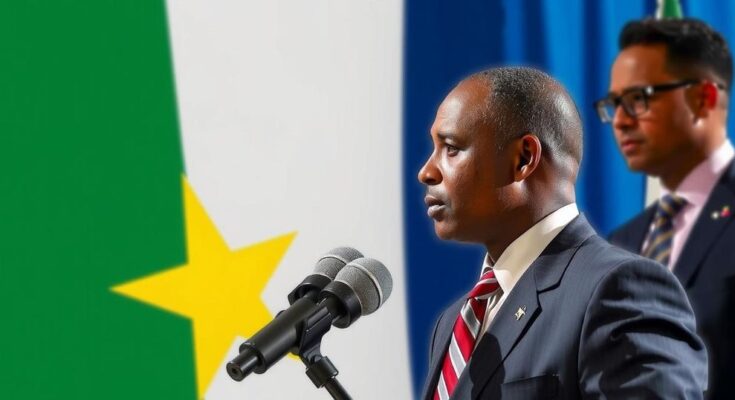Senegal’s parliamentary elections are underway, aiming to determine if President Bassirou Diomaye Faye can implement reforms. With over 7 million voters choosing 165 lawmakers, Faye needs a majority to tackle critical issues like corruption and resource allocation. The election follows heightened political tensions marked by violence against opposition supporters and reflects growing youth dissatisfaction in the country.
Polls opened on Sunday in Senegal for a parliamentary election with the potential to significantly influence the ability of President Bassirou Diomaye Faye to implement his proposed reforms. Over 7 million registered voters are selecting 165 lawmakers in the national assembly, where President Faye’s political party, PASTEF, currently lacks a majority. The election follows the dissolution of the previous parliament and aims to address issues such as corruption and equitable resource distribution, which Faye pledged during his anti-establishment campaign. President Faye, who was elected with 54% of the vote in March, faces opposition from the Takku Wallu coalition, led by former President Macky Sall, amongst 39 other political parties. To achieve a majority, Faye’s party requires at least 83 seats; analysts suggest they may succeed given their popularity and Faye’s favorable victory margin. Preliminary results are expected by Monday morning following the polls’ closure at 6 p.m. (1800 GMT). Senegal has been grappling with rising inflation, heavily impacting its youth, as more than 60% of the population is under 25 years old. Many are struggling in informal employment settings, leading to increased local emigration pressures. Political tensions have risen prior to the elections, marked by clashes between party supporters and allegations of violence against PASTEF members. Prominent among these events was an attack on Prime Minister Ousmane Sonko’s vehicle during a campaign rally, which has heightened the atmosphere of tension leading up to the parliamentary vote. The results of this election are pivotal, not only for President Faye’s administration but also for maintaining Senegal’s reputation as a stable democracy in West Africa, a region increasingly destabilized by political discord and violence. The international community is observing the developments closely, noting that the successful execution of Faye’s reform agenda will require strong parliamentary support to transition Senegal towards improved governance and socio-economic stability.
The parliamentary election in Senegal is crucial for President Bassirou Diomaye Faye, who was elected on a reformist agenda focused on combating corruption and improving local interests in resource management. With a political landscape marked by high youth unemployment and dissatisfaction with established political figures, this election represents a significant moment for addressing systemic issues. Tensions are heightened by political violence, underscoring the volatile atmosphere in which these elections are occurring. Maintaining stability is vital for Senegal, which has historically been viewed as a beacon of democratic governance in the region.
The parliamentary elections in Senegal are set to play a decisive role in determining President Bassirou Diomaye Faye’s capacity to enact the reforms he promised during his campaign. As Faye’s party seeks to secure a parliamentary majority, the results will not only shape domestic policies but also influence Senegal’s stability and democratic integrity amidst rising youth discontent and political unrest. The global attention on these elections signals the importance of successfully navigating this political transition for Senegal’s future.
Original Source: apnews.com




